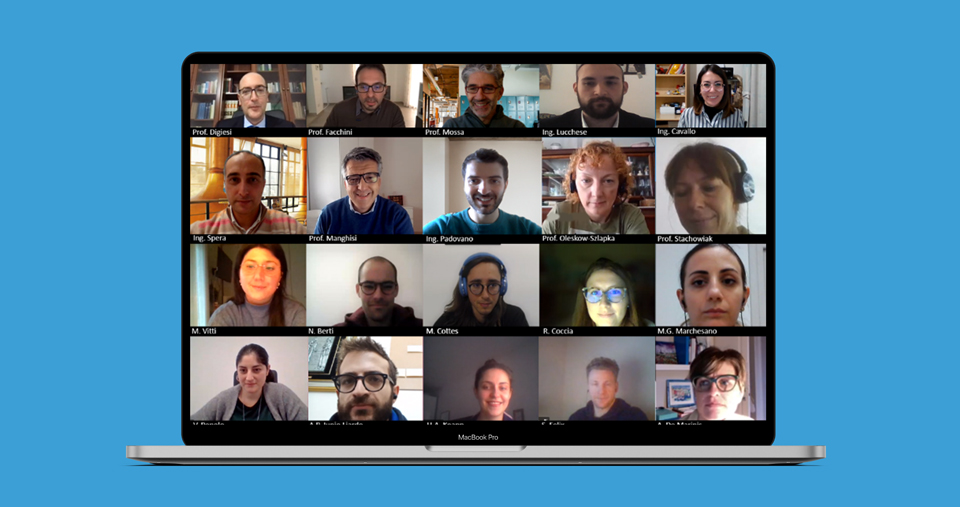
From the 13th January till the 29th January, 30 PhD students coming from 13 Italian Universities are attending the 30-hours PhD course “Human-based Smart Manufacturing Systems” offered at the Polytechnic University of Bari and organized by the research group of Prof. Giovanni Mummolo. The course, in this 6th edition, focuses on the role of operators in new I4.0-oriented work environments, exploring both critical elements arising from the transition from traditional to smart production systems and opportunities relying in the adoption of I4.0 enabling technologies.
The course is held by both university and industry speakers, coming from national (Italian) and international contexts, thus providing a broad and comprehensive vision on the topic.
During the course, the research groups of Polytechnic University of Bari address the topics of human performance modelling and human factors in Industry 4.0 as well as real time ergonomics risk assessments based on low-cost sensors. Prof. Luis Antonio De Santa-Eulalia from University of Sherbrooke, Canada, gives a contribution on Digital Transformation and Industry 4.0 in the next generation enterprises, and Proff. Agnieszka Stachowiak and Joanna Oleśków-Szłapka from Poznan University of Technology, Poland, address the topic of Logistics 4.0 and integration and implementation of Industry 4.0 technologies in production environments.
Contributions from Heineken (Michele Spera, TPM specialist) and from Bosch (Director Production Operations) on Maintenance and Lean Production, respectively, in I4.0 work environment are scheduled this year.
One of lessons of the course has been devoted to the knowledge and skills required in I4.0 production environment. During the lesson, the aim and the scope of the Industrial Engineering and Management of European Higher Education (IE3) project have been explained, and the results of the training needs analysis have been shown. Results obtained trigger a lively discussion among participants and based on their experiences they all agreed on the main findings of the first part of the project, pointing out the generalized request coming from companies of different industrial sectors of enlisting industrial engineers with interdisciplinary competences and soft skilled in order to remain competitive in the contemporary highly dynamic market.
The course is still going on, but the interest of participants in the IE3 project and the convergences on first results obtained is already a good result!

